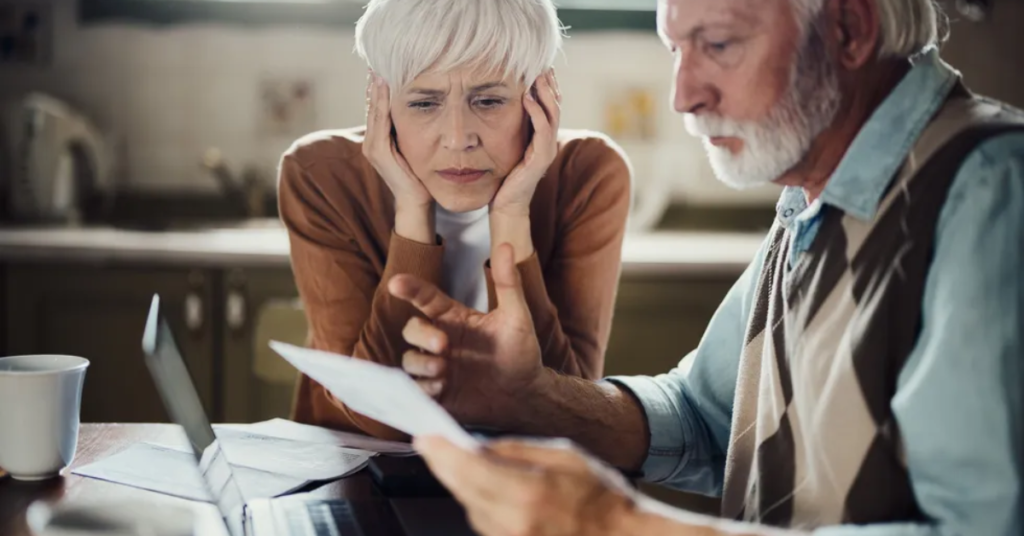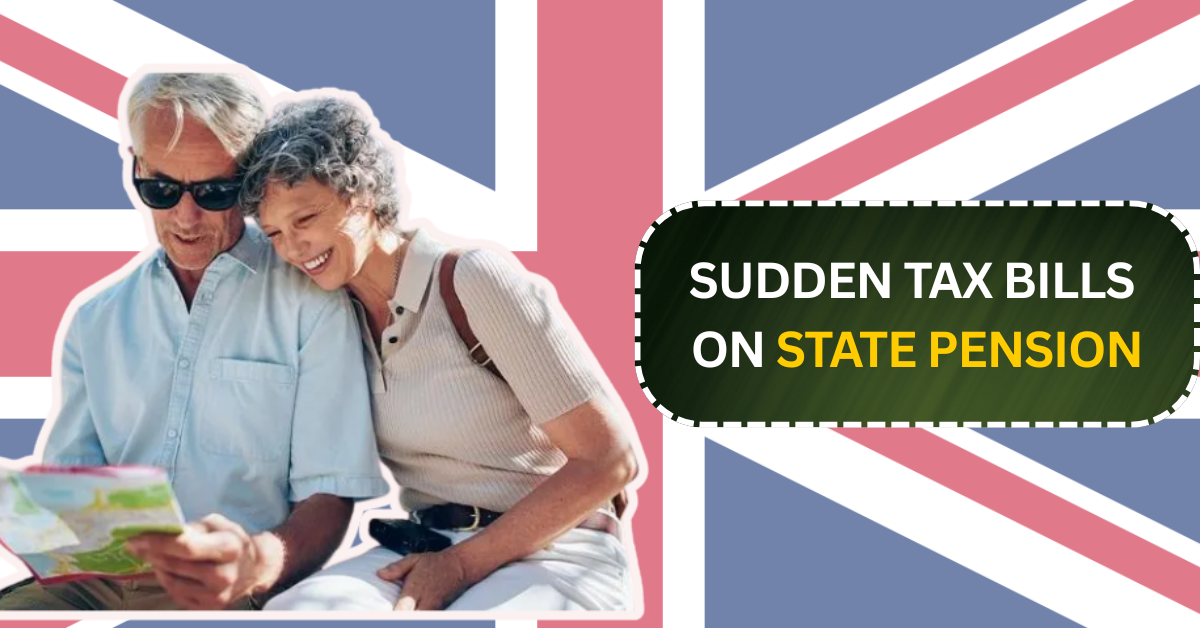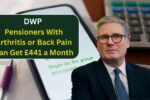The financial landscape for retirees in the UK is changing, and many pensioners unexpectedly find themselves in a position where they have to pay income tax. This change, dubbed a “stealth tax,” has many retirees worried about their future financial stability. The reason behind this sudden shift is a combination of two factors: rising state pension payments and the frozen personal allowance.
While the state pension continues to increase every year under the government’s “triple lock” guarantee, the personal allowance—the threshold at which individuals start paying income tax—has remained stagnant since 2021. This mismatch between the two is now forcing more retirees to pay tax, despite many previously never having been liable.
The Issue with the Frozen Personal Allowance
The personal allowance, which currently stands at £12,570, is the amount of income a person can earn before being required to pay income tax. However, this threshold has been frozen since the 2021/22 tax year, meaning that despite inflation and the increasing cost of living, the amount retirees can earn before they start paying tax has not increased. At the same time, the state pension continues to rise every year in line with the government’s “triple lock” guarantee, which ensures that pensions increase by the highest of inflation, average earnings, or 2.5%.
This combination of rising state pensions and a frozen personal allowance is creating a growing problem for retirees. Each year, the state pension amount increases, but since the personal allowance hasn’t kept up, more and more pensioners are being pushed over the threshold into paying income tax. According to a recent report by the House of Commons Library, this change has led to a sharp increase in the number of retirees who are suddenly facing tax bills.
The State Pension and Its Role in the Problem
The state pension is designed to provide a basic income for retirees, ensuring that they can maintain a reasonable standard of living once they stop working. Under the triple lock system, the full new state pension is now £221.20 per week, which translates to roughly £11,500 per year. While this amount is higher than it was in previous years, it is still close to the personal allowance threshold of £12,570.

This means that retirees who rely solely on their state pension may now need to pay tax on their income. The state pension is subject to income tax, but because it is paid directly by the Department for Work and Pensions (DWP), no tax is deducted at source. This is in contrast to private and occupational pensions, where tax is automatically deducted through the Pay As You Earn (PAYE) system.
A Hidden Tax Problem for Retirees
Historically, pensioners who only had the state pension as their source of income did not have to pay income tax, as their annual income was below the personal allowance threshold. However, with the annual increase in the state pension and the freeze on the personal allowance, retirees are now finding themselves in a situation where their income exceeds the personal allowance, leading to a tax bill. This has come as a shock to many, as they were not expecting to pay tax on their state pension.
Many retirees are not fully aware of the implications of this change, and for those who also have private or occupational pensions, the situation is even more complex. In these cases, the pension provider calculates the total tax due and deducts it through PAYE. However, for those who only have the state pension, the lack of tax deductions at source means they are now being required to file a tax return and pay tax on their income, something they have never had to do before.
Financial Expert’s Warning
Financial experts are increasingly raising concerns about the impact this change will have on retirees. Fiona Peake, a financial expert at Ocean Finance, warns that the number of pensioners paying income tax is expected to rise significantly in the coming years. “Nearly 18 million more people are expected to be paying income tax by 2027, and almost half of them will be over 60,” Peake explains.
The combination of rising state pension payments and the frozen personal allowance is a ticking time bomb for many retirees. The full new state pension, which currently pays £221.20 a week, is only a few hundred pounds shy of the personal allowance threshold. As a result, when retirees receive even a modest private or workplace pension, their total income easily exceeds the personal allowance, triggering a tax bill.
The Effect of the Triple Lock Guarantee
The triple lock guarantee, which ensures that the state pension rises every year in line with inflation, has been one of the cornerstones of the government’s pension policy. However, this policy, while well-meaning, is now contributing to the growing problem for retirees. While it is important to ensure that pensions keep up with inflation, the freeze on the personal allowance means that the increase in the state pension is pushing many retirees into the tax bracket.

This situation represents a significant shift in the way retirement income is taxed. Despite no formal changes to the tax rates, the combination of rising state pensions and a frozen personal allowance is effectively increasing the number of retirees who are subject to tax. For many retirees, this shift has come as a surprise, and they are now finding themselves caught in a system that they did not anticipate.
The Impact on Retirees’ Financial Security
The impact of this change is not just about paying tax—it’s also about the overall financial security of retirees. Many pensioners rely on their state pension as their primary source of income, and the freeze on the personal allowance means they are now facing higher taxes. This could affect their ability to cover day-to-day expenses, especially as the cost of living continues to rise.
Financial experts are urging retirees to examine their incomes more closely and understand the potential tax implications. Those with private or occupational pensions may find that they are already subject to tax through PAYE, but those with only the state pension need to be aware that they may now be required to file a tax return. It is also important for retirees to understand that the tax system can be complex, and seeking professional financial advice could help them navigate these changes more effectively.
What Can Retirees Do About It?
If you are a retiree who is concerned about the potential for a tax bill, there are a few things you can do. First, it is essential to check your total income to see whether it exceeds the personal allowance threshold. If you have only the state pension as your income, you may now need to file a tax return and pay tax.
If you have private or workplace pensions, your pension provider will likely calculate the tax due and deduct it through PAYE. However, if you are unsure about your tax situation, it is always a good idea to seek advice from a financial expert who can help you understand your liabilities and explore potential ways to reduce your tax burden.
Conclusion
The issue of pensioners facing unexpected tax bills is a growing concern, and the combination of the rising state pension and the frozen personal allowance is exacerbating the problem. While the state pension is rising every year to keep up with inflation, the personal allowance has remained stagnant, leading to an increasing number of retirees being dragged into the tax system.
For many, this shift represents a significant change in how retirement income is taxed, and it is important for retirees to be aware of the implications. By understanding the tax rules and seeking professional advice, retirees can better manage their financial situation and avoid any unpleasant surprises when it comes to paying taxes.

Deepak Grover is a dedicated content writer at OTE News, specializing in government affairs, public policy, and current events. With a keen eye for detail and a passion for factual reporting, he ensures readers receive accurate and insightful news. Deepak holds a degree in Political Science and has experience in research-driven journalism.
When not writing, he enjoys reading historical books, exploring hiking trails, and staying updated with global political trends. His commitment to ethical journalism makes him a trusted voice at OTE News.




